We asked the BuzzFeed Community to tell us which movie moments were way ahead of their time. Here are the noteworthy results.
Warning: Some submissions include topics of police brutality, verbal abuse and harassment, and racial discrimination.
Note: Not all submissions are from Community users.
1. In Cabaret (1972), when Sally Bowles decided to get an abortion because she knew she wouldn't be a good parent, showing a perfectly normal and common feeling women deal with but are always shamed for.

2. In Guess Who's Coming to Dinner (1967), when Matt gave his memorable speech to John and Joanna about the importance of their relationship, vocalizing just how ridiculous and damaging various generations can be when it comes to interracial love.
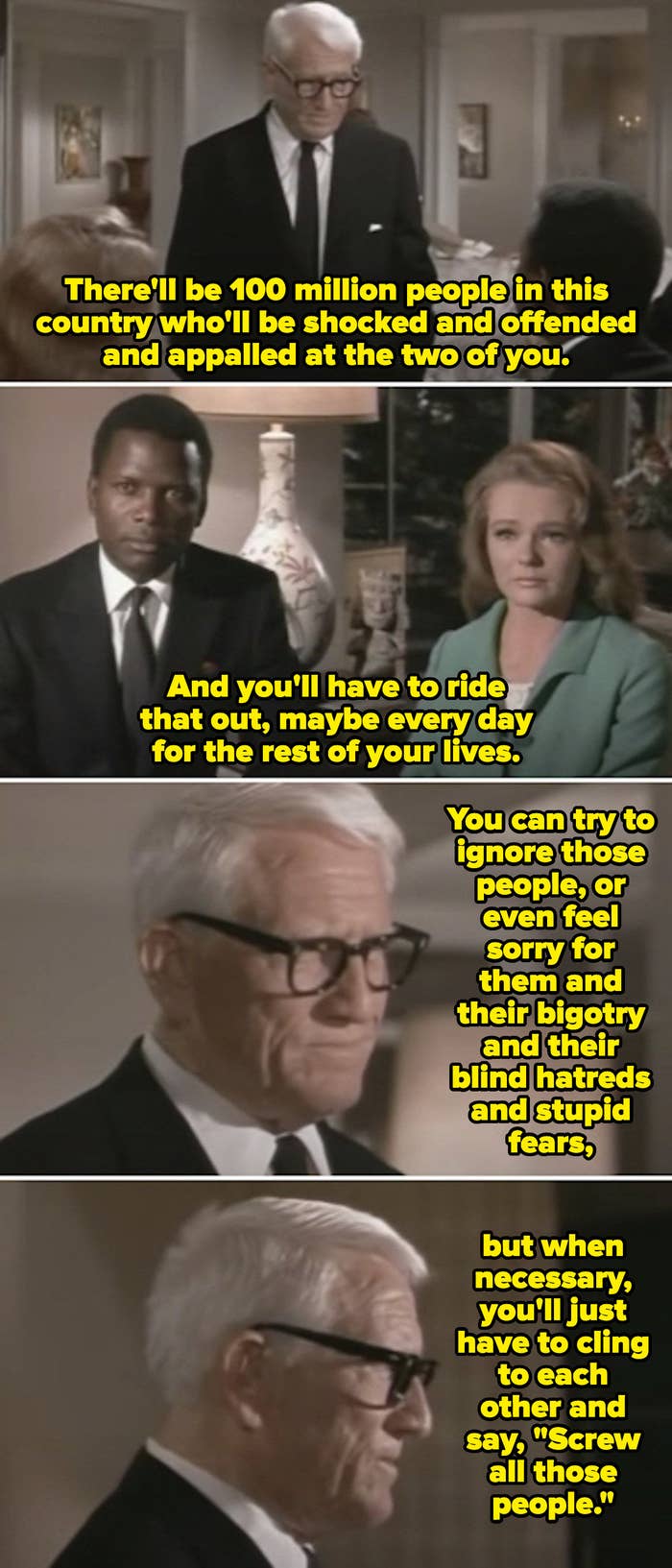
3. In Some Like It Hot (1959), when Jerry revealed to Osgood that he was actually a man and he nonchalantly responded, "Nobody's perfect," showing acceptance toward queer love with a quick and witty line rather than something hateful.
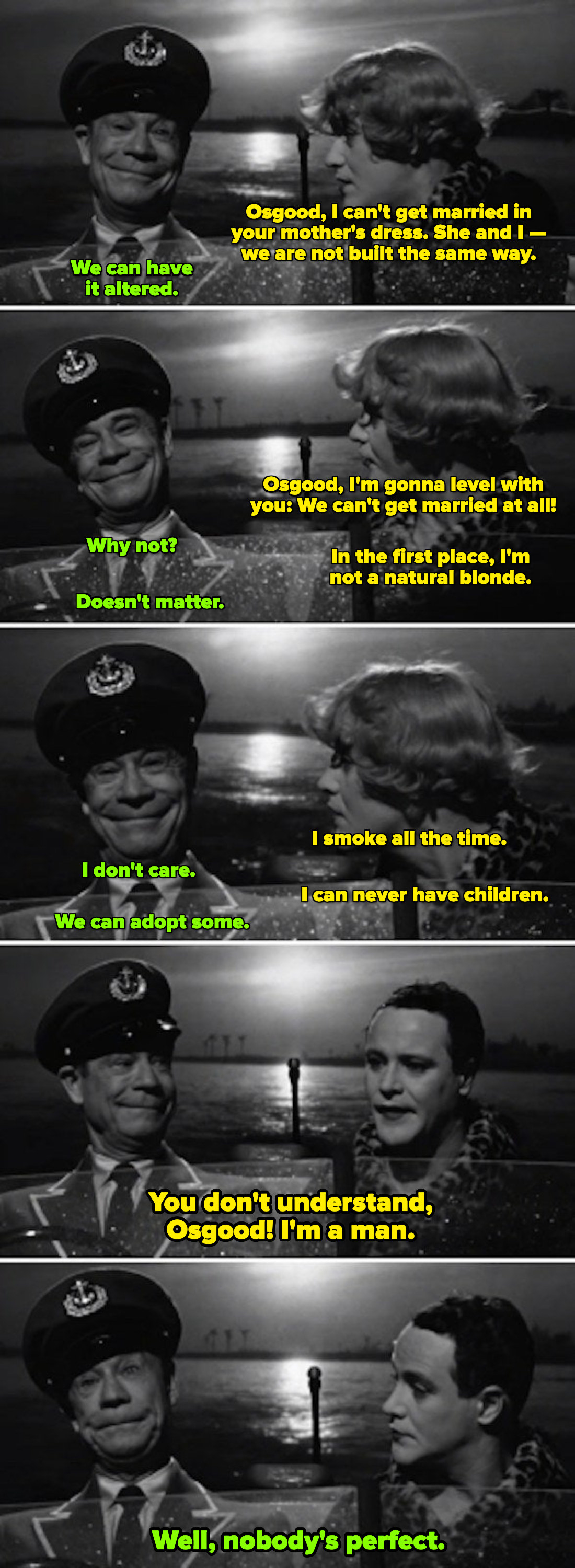
4. In Do the Right Thing (1989), when everyone in the neighborhood told Mookie that Radio Raheem was murdered by white police officers, a dialogue that spoke to the injustice of police brutality against Black US citizens.
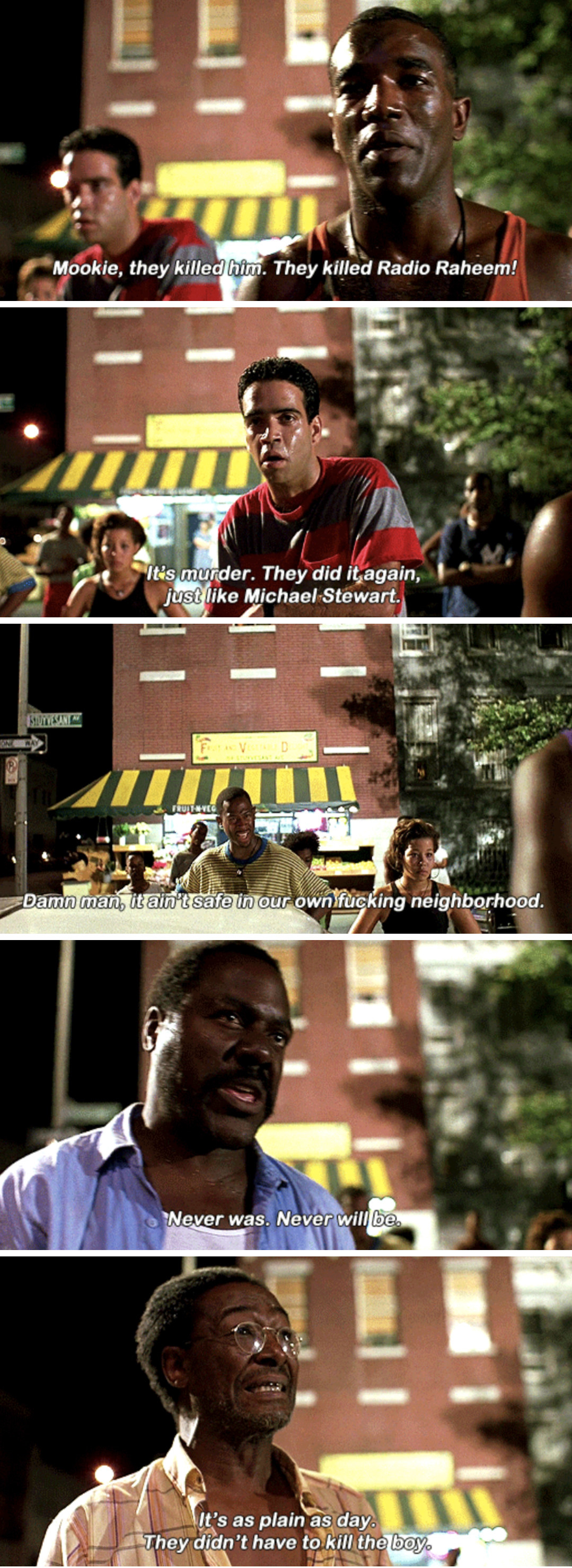
5. In The Rocky Horror Picture Show (1975), when Dr. Frank-N-Furter performed iconic songs while wearing outfits traditionally worn by women, shedding a light on sexual fluidity and expression that queer men weren't afraid to show in the 1970s.
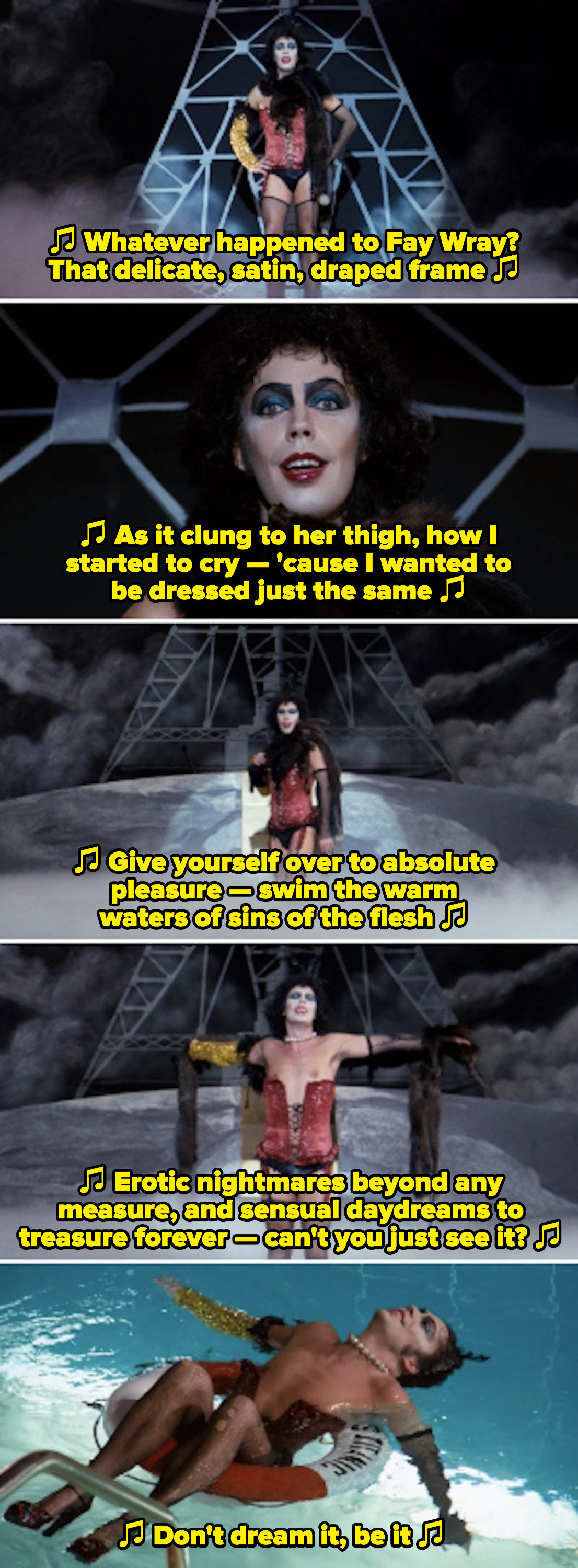
6. In The Devil and Miss Jones (1941), when Thomas stormed into Mr. Alice's office and criticized his toxic working conditions after going undercover as a shoe clerk, advocating for the importance of labor unions and workers rights.

7. In Klute (1971), when Bree started seeing a psychiatrist to deal with her traumas as a sex worker, humanizing what female sex workers experienced rather than romanticizing their profession under a toxic male gaze.
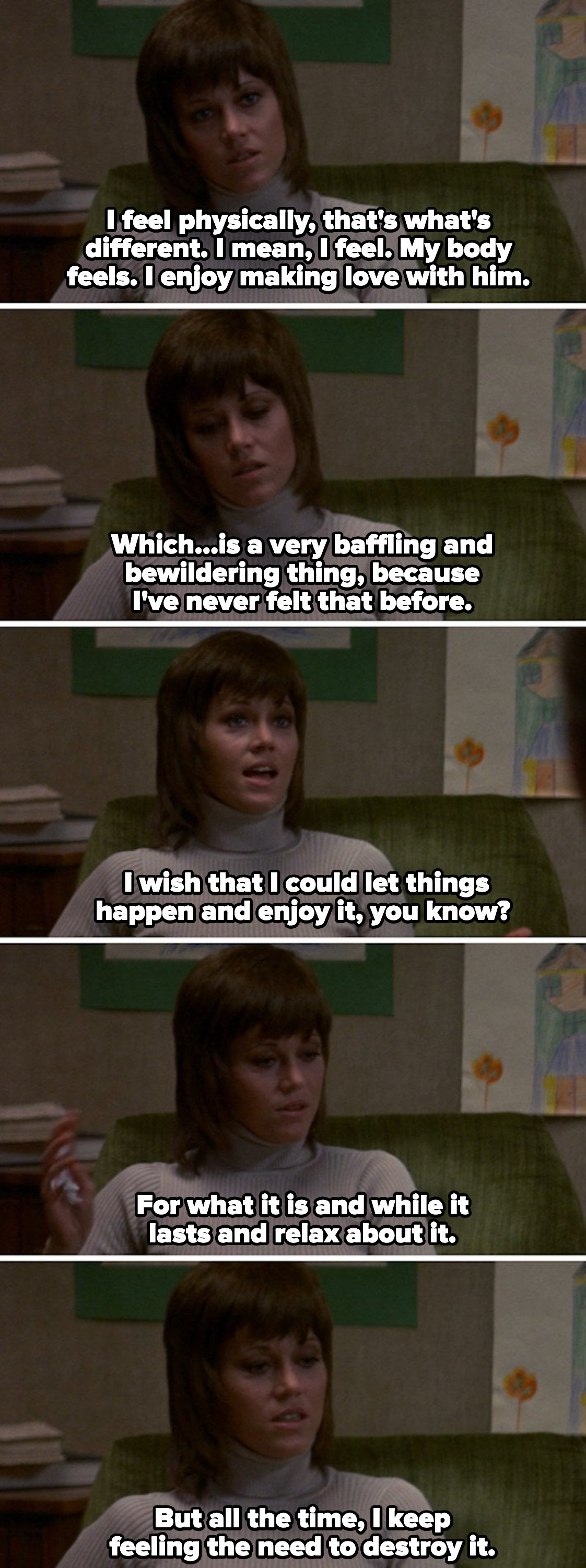
8. In Dirty Dancing (1987), when Penny had an abortion and wound up getting terribly hurt because of an unqualified doctor, showing the physical damage women faced when they had the procedure in the 1960s.
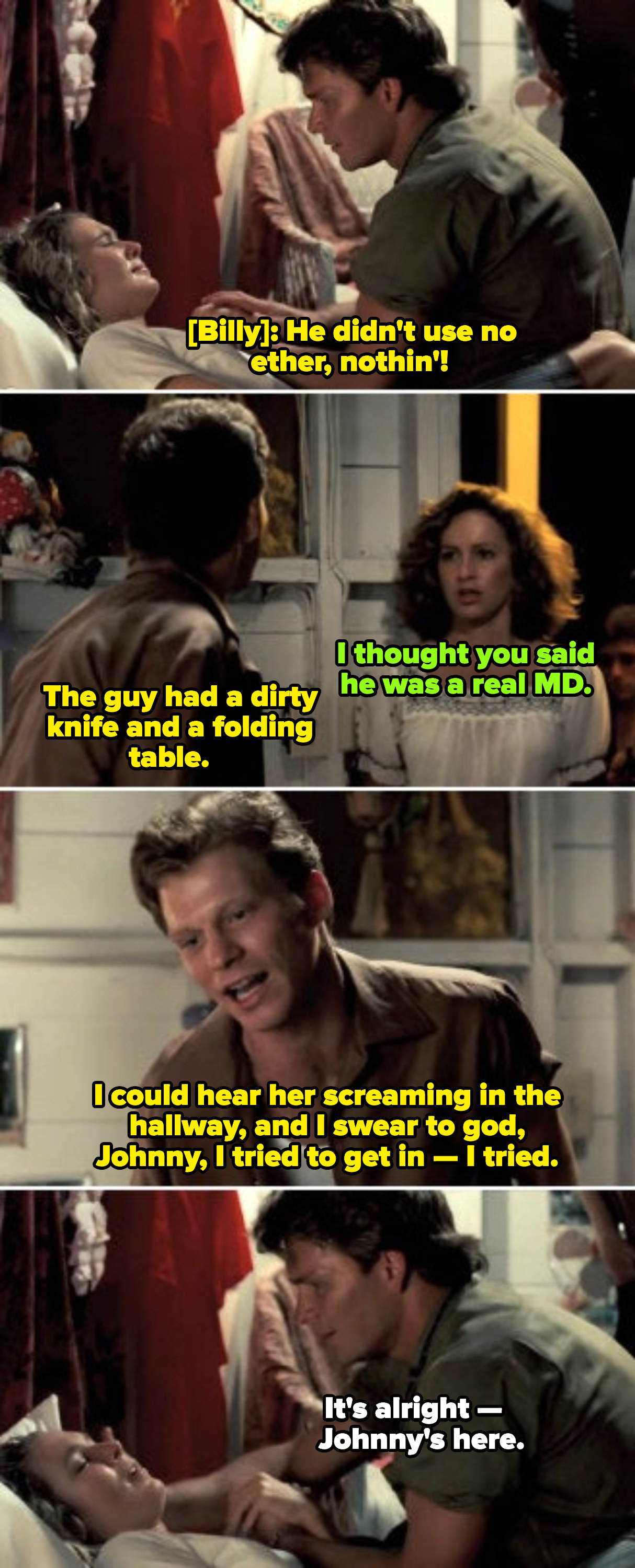
9. The entire premise of Mississippi Masala (1991), but mostly the beach scene where Demetrius told Mina that love should always be explored and celebrated, tackling the unfair burden parents put on their children in interracial relationships.
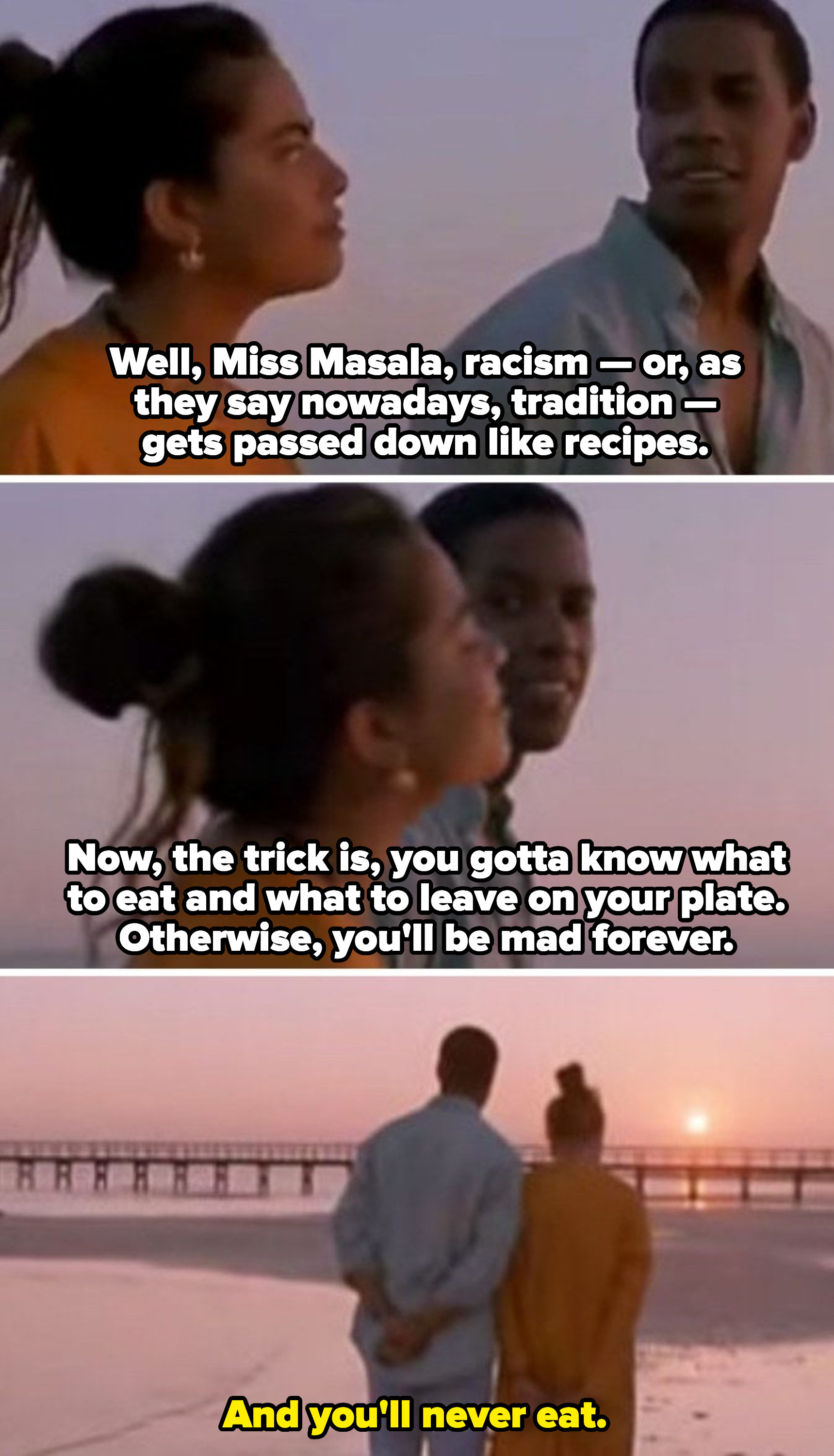
10. In Girl Stroke Boy (1971), when Laurie brought home his Black trans girlfriend, Jo, to meet his family, showing one of the first LGBTQ relationships in film where the trans woman wasn't the butt of the joke.
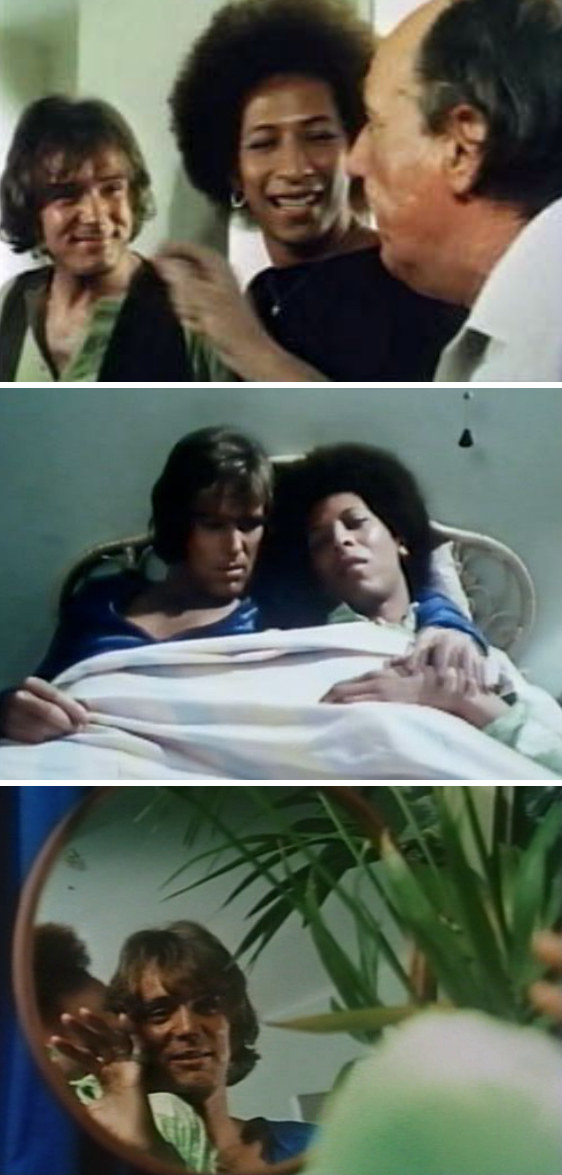
11. In Pressure Point (1962), when Bobby Darin's character (a Nazi-sympathizing patient) got Sidney Poitier's character (a psychiatrist) fired because he was Black, addressing the toxicity of white privilege in the US and how damaging it can be against nonwhite citizens.
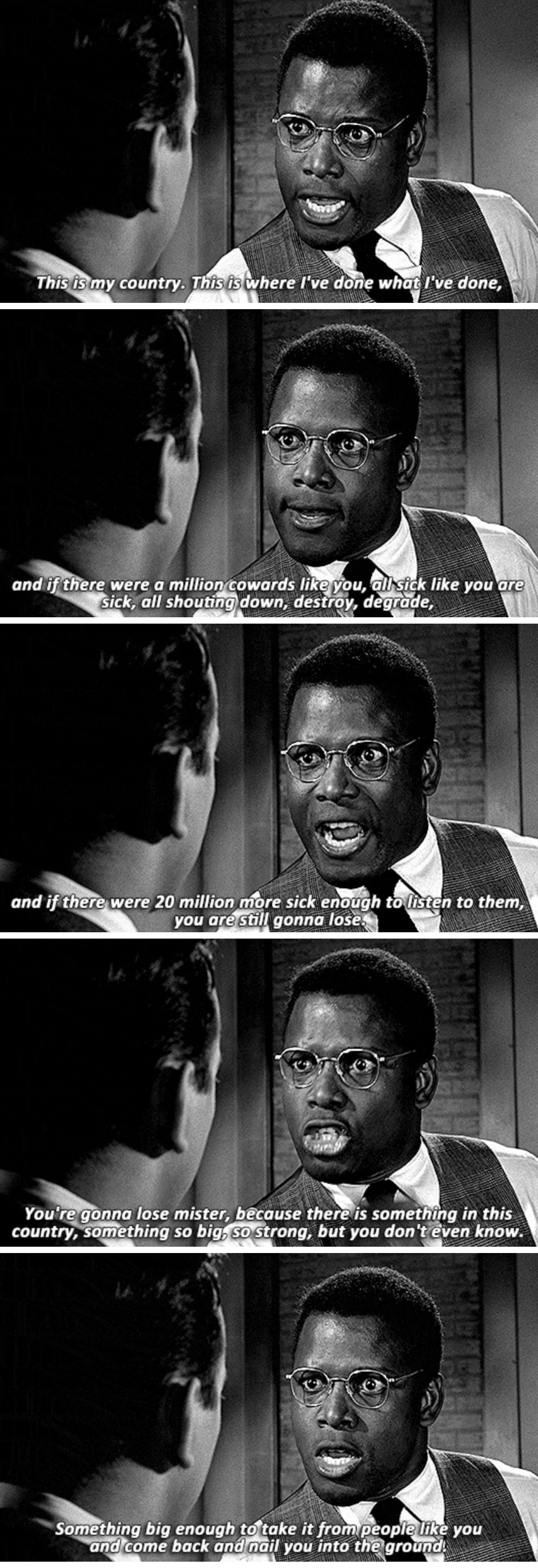
12. At the end of She's Gotta Have It (1986), when Nola Darling ended her relationships with Jamie, Greer, and Mars because she wanted to remain in control of her mind and body. She crawled into her 'loving bed' by herself, letting women know that it's totally okay to put yourself first and feel zero shame for being in polyamorous relationships.
![Nola to the camera: "[Jamie] wanted a wife, that mythic old-fashioned girl next door — but it's more than that. It's about control — my body, my mind. Who is gonna own it: them or me?"](https://img.buzzfeed.com/buzzfeed-static/static/2021-10/13/22/asset/0bc98f50e3ce/sub-buzz-3753-1634164430-5.jpg)
13. In Morocco (1930), when Marlene Dietrich's character, Mademoiselle Amy Jolly, kissed a female audience member during one of her performances, becoming one of the first lesbian kisses in a major motion picture in the US.
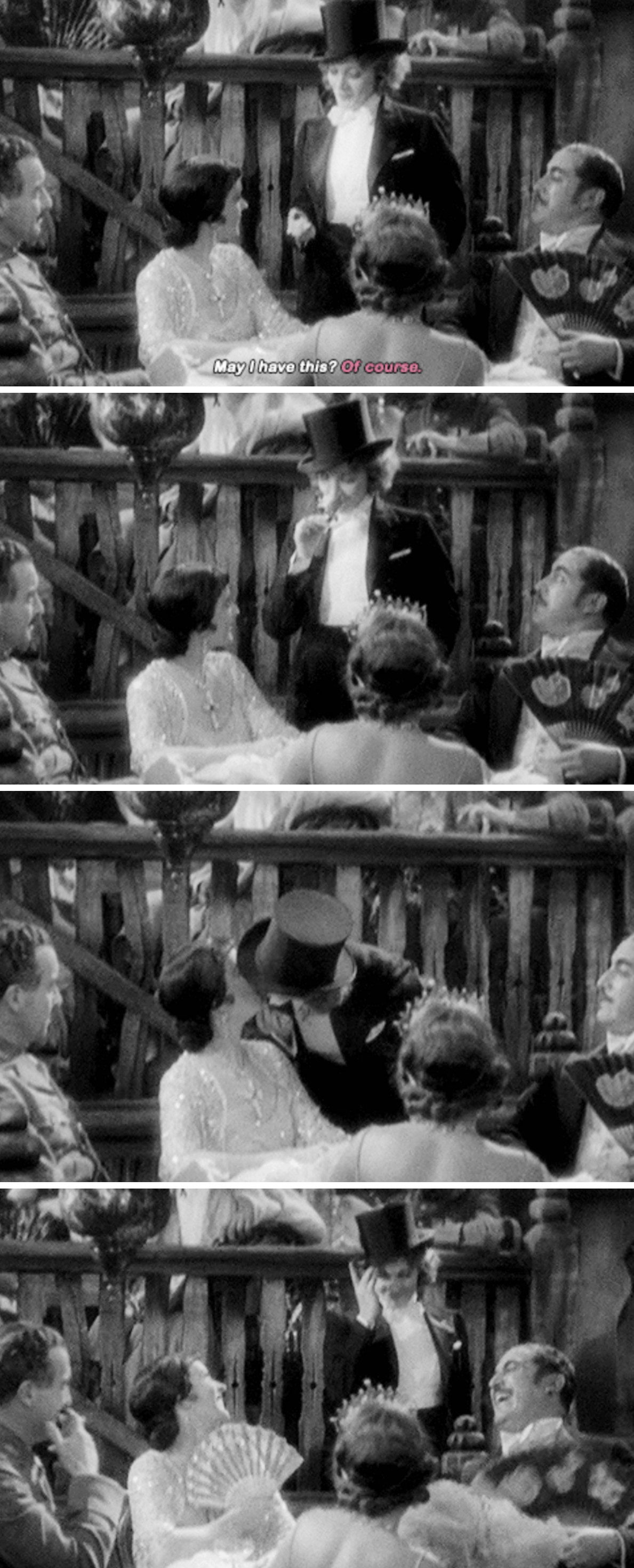
14. In For Keeps (1988), when Darcy didn't want to hold her newborn baby after giving birth and spent her days watching TV in bed, tackling postpartum depression during a time when women were deeply afraid to discuss it openly.
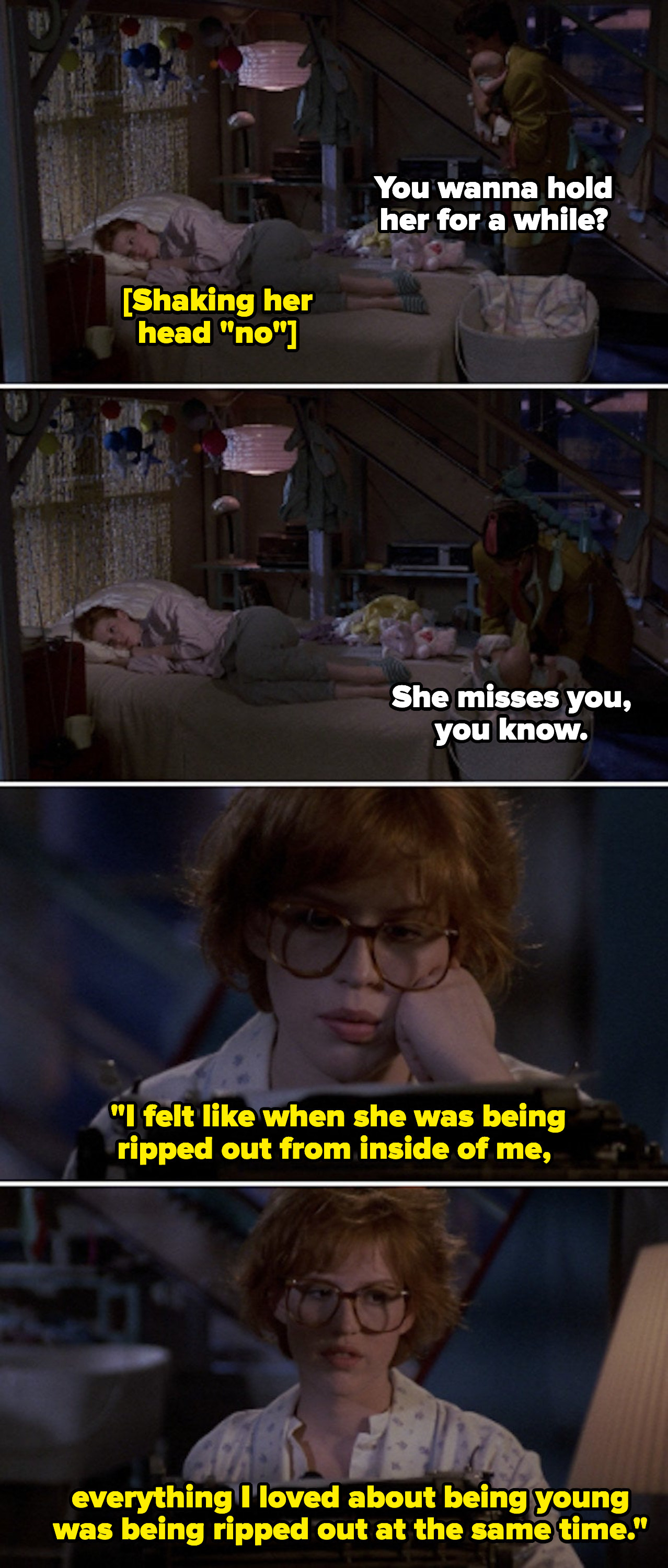
15. And in Coming Home (1978), when Bob returned home after fighting in the Vietnam War and was ready to shoot his wife, Sally, for having an affair with Luke (another Vietnam War veteran). This showed the deep and horrific PTSD veterans experienced, which was a big deal in 1978 because up until that point in film, war was very much glamorized.
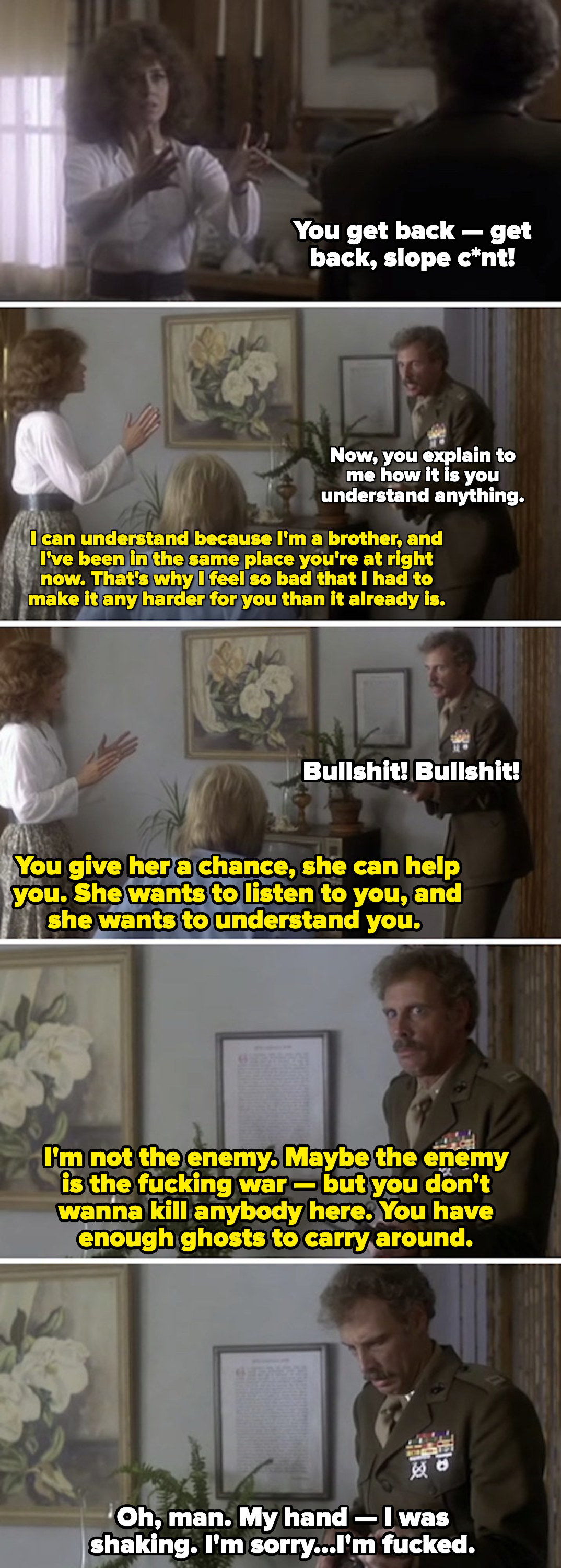
Note: Some submissions have been edited for length and/or clarity.
